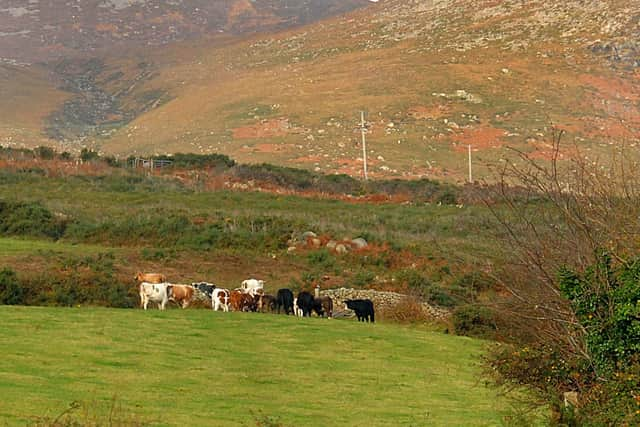Beef and sheep farmers urged to participate in study
and live on Freeview channel 276
These farms, and farm households, make a significant contribution to the rural economy and are an important component in social cohesion in more sparsely populated areas.
Alongside this, farming in the hills and uplands is the single biggest influence on the landscape, while farming activities have multiple impacts on natural habitats and the wider environment. Getting the right balance between these economic, environmental and community factors is not easy and is the subject of ongoing debate and investigation.
Advertisement
Advertisement
In this mix of issues, the environment is emerging as an area of particular concern, with problems which, if not addressed, will ultimately also have negative impacts on the economy and communities. In response, hill and upland farmers have the potential to take a variety of actions that could both reduce environmental pressures and promote environmental benefits. Areas of interest include carbon sequestration; flood mitigation; better water and air quality; the creation or improvement of natural habitats; as well as wider cultural, educational and recreational opportunities. Delivering environmental services, that also enhance the economic viability of farms and strengthen community cohesion, will result in a more sustainable system of hill and upland farming.


In order to explore both the challenges and opportunities for hill and upland beef and sheep farmers, DAERA have recently funded a project called BeCHUF (Behavioural Change in Hill and Upland Farmers). The BeCHUF project brings together researchers from AFBI and Ulster University and is led by Drs Denise Lowe and Simone Angioloni from AFBI.
Dr Lowe stated: “Good environmental and sustainability credentials are an important part of the business plan for hill and upland farms. Therefore it is crucial that we understand what works well and what more can to be done to support our local farmers in responding to changing market and policy challenges.”
The BeCHUF research team wishes to recruit hill and upland beef and sheep farmers, as well as industry stakeholders, to provide new local evidence on how farmers can transition to more sustainable farming practices and to investigate the challenges faced by local farmers in adapting existing farming methods to meet new demands. The research team at Ulster University, led by Professor Barry Quinn, will be hosting virtual focus group sessions in March and April to explore the broad topic of change and sustainability in farming, including the drivers, barriers and opportunities for behavioural change. Professor Quinn stated: “This is the first time Ulster University Business School have collaborated with AFBI on a research study, but we believe that farming will be increasingly subject to the same requirements as businesses operating in other sectors of the economy. Determining the ways in which farmers can embed environmental credentials and sustainability into their farm business will be vital for their long-term survival.”
If you would like to participate in the virtual focus groups please get in touch with Dr Denise Lowe either by telephone (028 9268 1611) or by email ([email protected]).